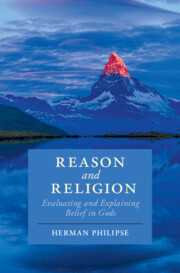Refine search
Actions for selected content:
10 results
24 - Lessons from Moral Psychology for Moral Philosophy
- from Part V - Applications and Extensions
-
-
- Book:
- The Cambridge Handbook of Moral Psychology
- Published online:
- 20 February 2025
- Print publication:
- 27 February 2025, pp 596-620
-
- Chapter
- Export citation
7 - Philosophy
-
- Book:
- Charles Darwin
- Published online:
- 05 December 2024
- Print publication:
- 28 November 2024, pp 116-142
-
- Chapter
- Export citation
7 - Interventions to Combat Misinformation
- from Part III - Countering Misinformation
-
- Book:
- The Psychology of Misinformation
- Published online:
- 28 March 2024
- Print publication:
- 04 April 2024, pp 98-115
-
- Chapter
- Export citation
Chapter 15 - Debunking and Preventing Conspiracies
- from Part IV - The Role of Communication in Promoting and Limiting QAnon Support
-
-
- Book:
- The Social Science of QAnon
- Published online:
- 14 September 2023
- Print publication:
- 28 September 2023, pp 252-268
-
- Chapter
- Export citation
19 - Debunking Arguments and Religious Belief
- from Part III - New Directions
-
-
- Book:
- The Cambridge Handbook of Religious Epistemology
- Published online:
- 24 August 2023
- Print publication:
- 17 August 2023, pp 290-304
-
- Chapter
- Export citation

Reason and Religion
- Evaluating and Explaining Belief in Gods
-
- Published online:
- 21 April 2022
- Print publication:
- 28 April 2022
Chapter 9 - Conclusions
-
- Book:
- Creating Conspiracy Beliefs
- Published online:
- 18 November 2021
- Print publication:
- 25 November 2021, pp 202-224
-
- Chapter
- Export citation
8 - Morality for the Mechanist
-
- Book:
- A Philosopher Looks at Human Beings
- Published online:
- 20 May 2021
- Print publication:
- 20 May 2021, pp 166-180
-
- Chapter
- Export citation
How Can Psychological Science Help Counter the Spread of Fake News?
- Part of
-
- Journal:
- The Spanish Journal of Psychology / Volume 24 / 2021
- Published online by Cambridge University Press:
- 12 April 2021, e25
-
- Article
-
- You have access
- Open access
- HTML
- Export citation
Skeptical hypotheses and moral skepticism
-
- Journal:
- Canadian Journal of Philosophy / Volume 43 / Issue 3 / 2013
- Published online by Cambridge University Press:
- 01 January 2020, pp. 341-359
-
- Article
- Export citation
